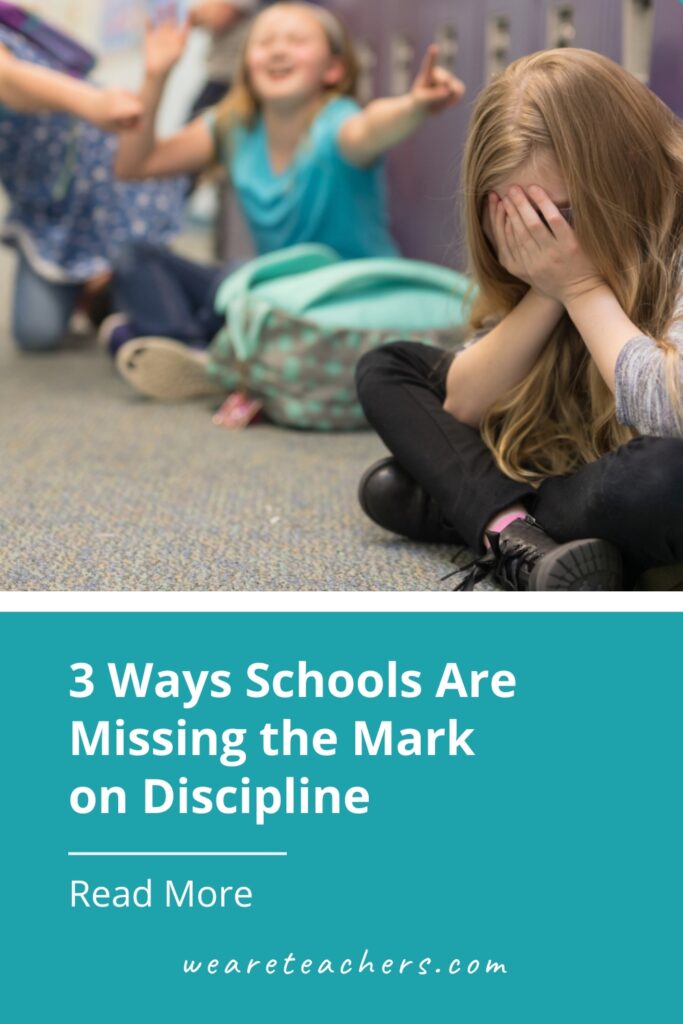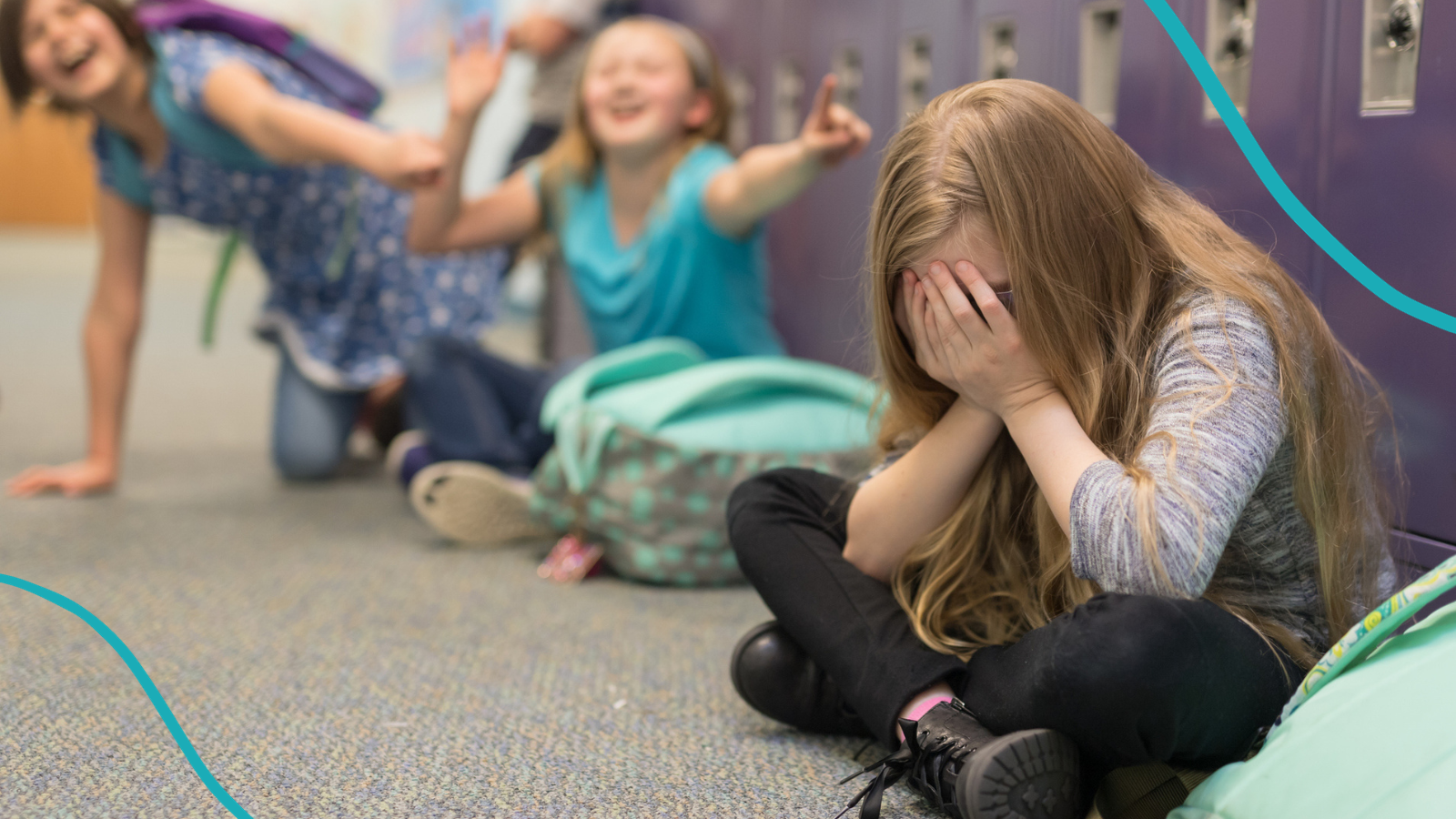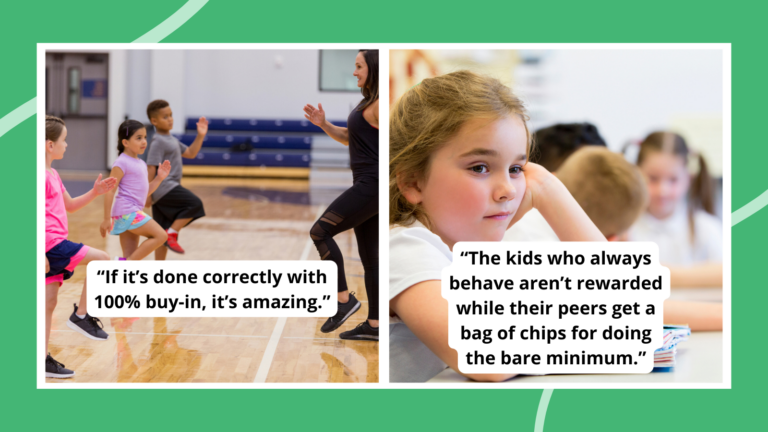School discipline is a hot subject of debate in the world of education. In recent years, states such as California and Texas have been attempting to revamp their school discipline policies, including reducing or eliminating suspension for students in elementary schools. Other states are focusing on more proactive approaches, for example requiring PBIS or restorative justice methods.
But despite the good intentions behind these initiatives, schools on the whole aren’t seeing positive results. In fact, 84% of schools report that student behavior is worse than last year, and overall, schools seem lost in this discipline shift.
So. How did we get here?
1. Schools rush to adopt grading and behavior policies that mask negative trends.
No grade in the grade book below a 50. Unlimited time to turn in work. Unlimited retest opportunities. No official school consequences for behavior unless it’s violent. No consequences for failing or not attending summer school.
Sound familiar?
These policies were developed to be used sparingly for students who need them the most on a case-by-case basis, specifically for outlier students who need significant, specialized support.
They should have never been implemented across the board for an entire school.
But do you know why they’ve been adopted for whole schools anyway? They make it look like students have higher grades than they really do. They make it look like a school has student behavior under control. They lower the academic and behavioral standards for an entire population of a school, leaving teachers to deal with the fallout and students to wonder why they should bother turning in anything at all.
Luckily, some districts are backtracking on this … but not all are.
2. Schools want serious solutions from teachers without providing serious support for them.
For decades, we have piled more and more work onto teachers without giving them any additional support.
School-wide systems like PBIS and restorative justice are great in theory. But schools that demand this kind of buy-in and extra work without also creating time and space for their teachers to do that work effectively are out of touch. Read it for yourself in these responses from teachers in PBIS schools.
3. Schools have conflated punishment with discipline.
We all know that punishment is not the most effective behavior remedy long-term. But discipline still is.
Research on the ineffectiveness of punitive measures does not invalidate the need for discipline—the teaching of behavior. It’s like schools have forgotten this part of the equation and just said, “Well, we know punishment is ineffective so we’d better just not enforce any kind of discipline.”
Let’s say a student throws a handful of spaghetti at his friend during lunch out of anger, misses, and hits a teacher in the cafeteria.
Does a knee-jerk Saturday detention teach the student anything? I would say no. Does making the student apologize and hurrying them back to class teach them anything? I can tell you from years of observation: no.
You know what does teach a student the impact of their behavior and ensures they’re ready to rejoin the lunchroom with the skills you’re looking for? Shadowing a custodian so they can see how their choice to throw spaghetti impacts someone else. Making them volunteer hours at a soup kitchen on a Saturday for perspective on wastefulness. Seeing how they can make things right for the teacher they impacted. Having the student practice self-regulation strategies at a workshop led by a counselor once a month. Asking a student for input on how they can demonstrate they’ve learned their lesson. This is just off the top of my head here.
Yes, this asks a lot from administrators, considering their behavior management workload. But it’s important to ask ourselves whether we created this mess ourselves by being so lax—and whether we can turn this ship around by raising our standards again.
Teacher voices have to be at the leadership table.
Schools should offer kids the opportunity to course-correct in a safe and low-risk way. We’re doing a disservice to their development and their personhood by acting like kids are too fragile for discipline or struggle of any kind.
In recent years, we’ve stopped listening to experts, teachers included. I hope we’ve reached the end of the pendulum arc and that, in time, we’ll swing back to the middle. A place where teachers and other authority figures are trusted, but where the public also feels empowered to ask questions of them. A place where leaders trust teachers to help shape legislation, policy, and other decisions that shape schools. And where parents are neither the boss nor the customer who is always right, but a partner in education.
For more articles like this, be sure to subscribe to our newsletters.


